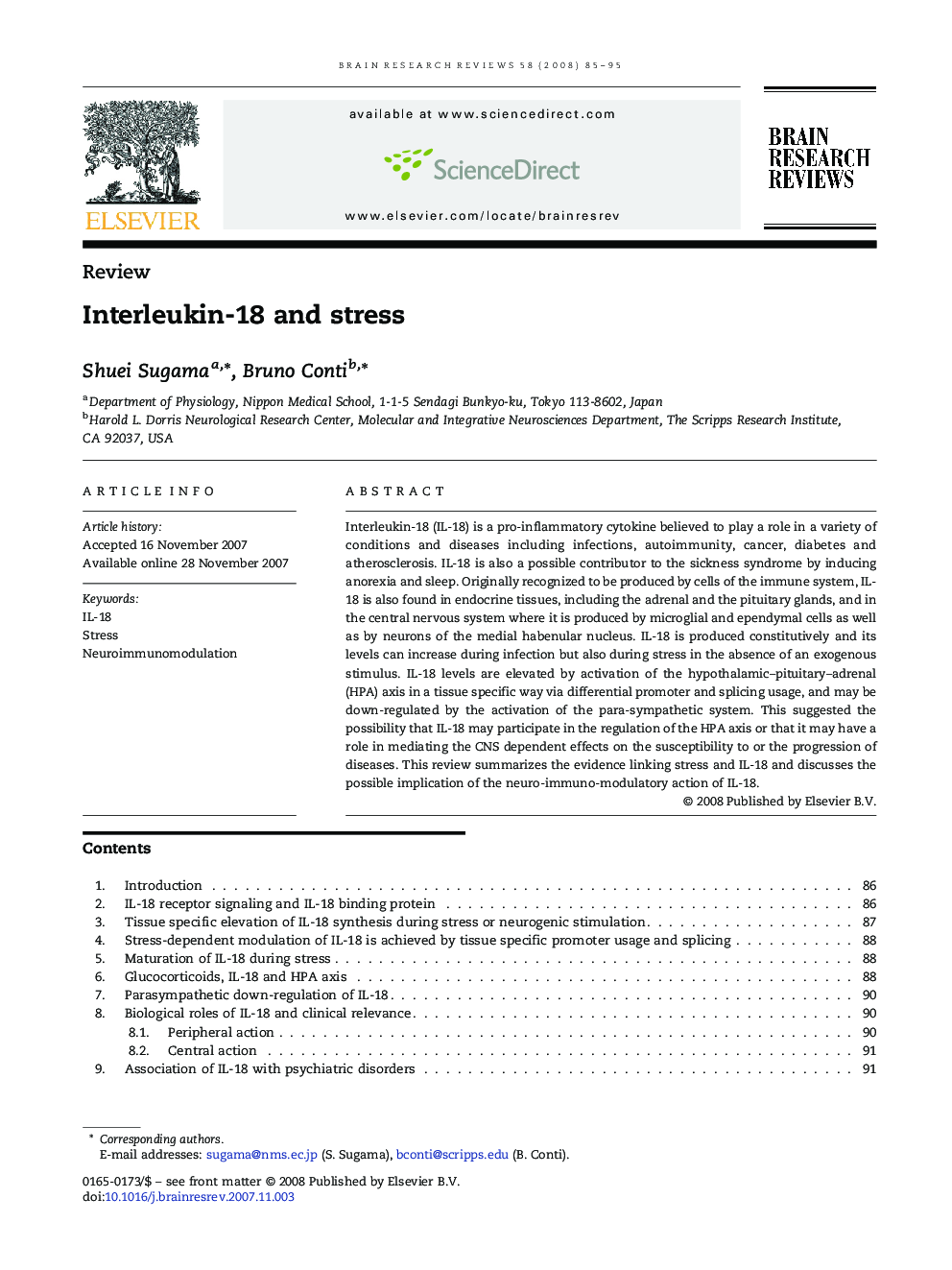| Article ID | Journal | Published Year | Pages | File Type |
|---|---|---|---|---|
| 4333753 | Brain Research Reviews | 2008 | 11 Pages |
Interleukin-18 (IL-18) is a pro-inflammatory cytokine believed to play a role in a variety of conditions and diseases including infections, autoimmunity, cancer, diabetes and atherosclerosis. IL-18 is also a possible contributor to the sickness syndrome by inducing anorexia and sleep. Originally recognized to be produced by cells of the immune system, IL-18 is also found in endocrine tissues, including the adrenal and the pituitary glands, and in the central nervous system where it is produced by microglial and ependymal cells as well as by neurons of the medial habenular nucleus. IL-18 is produced constitutively and its levels can increase during infection but also during stress in the absence of an exogenous stimulus. IL-18 levels are elevated by activation of the hypothalamic–pituitary–adrenal (HPA) axis in a tissue specific way via differential promoter and splicing usage, and may be down-regulated by the activation of the para-sympathetic system. This suggested the possibility that IL-18 may participate in the regulation of the HPA axis or that it may have a role in mediating the CNS dependent effects on the susceptibility to or the progression of diseases. This review summarizes the evidence linking stress and IL-18 and discusses the possible implication of the neuro-immuno-modulatory action of IL-18.
